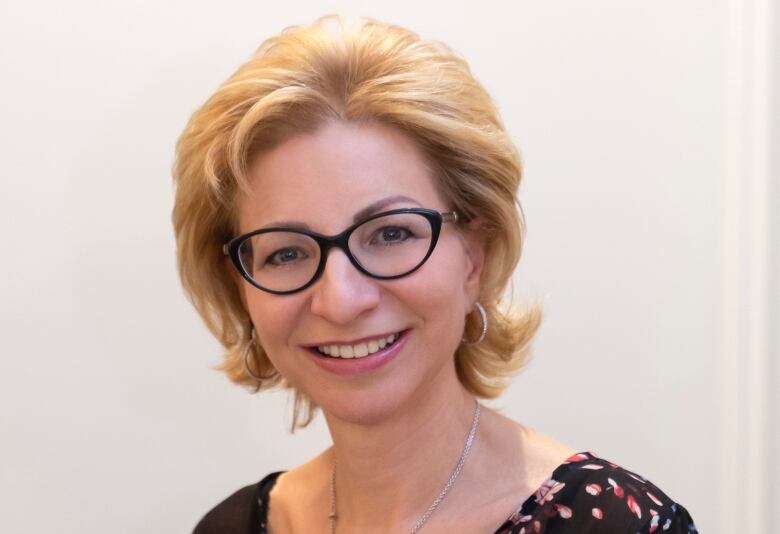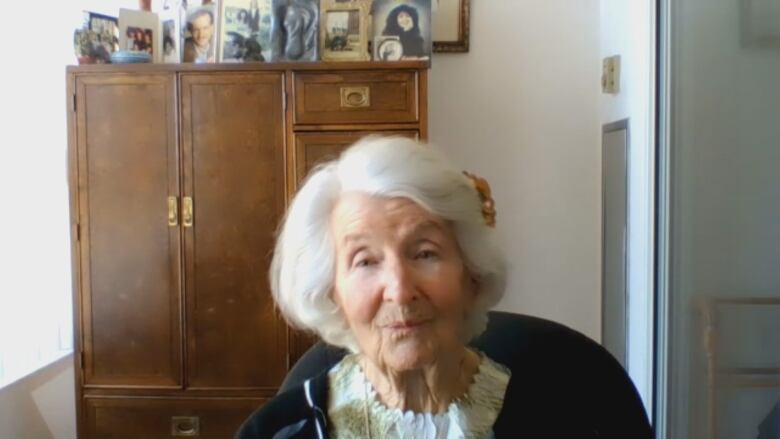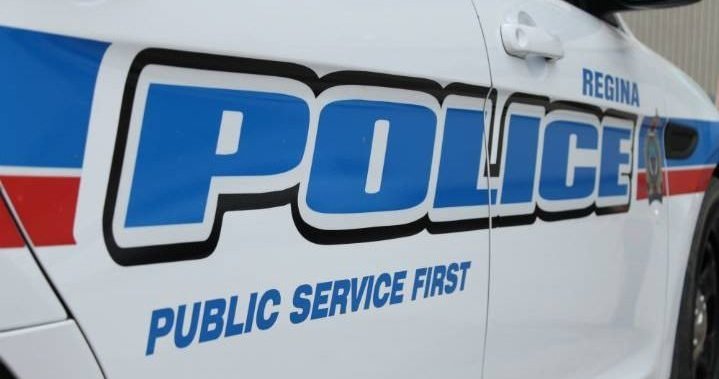It’s been more than 70 years but the vivid details of Auschwitz remain fresh in the mind of 93-year-old Hedy Bohm.
“I see the barracks. I see the beaten earth that I was sleeping on. I see the total lack of colour everywhere,” said Bohm, who was 16 when she was taken from her home to the Oradea ghetto in what is now Romania and later sent to the infamous concentration camp in Nazi-occupied Poland.
Bohm was separated from her parents. She remembers trying to chase after her mother before being stopped.
“That is so deep in my mind. I think it was the most difficult moment of my life.”
That was the last time Bohm ever saw her mother.

Bohm now shares her Holocaust survival story with students through an online program called Outschool.
“I’m hoping that there is always a person in whatever group I talk to that will be inspired to do something that they didn’t think of before,” said Bohm.
‘Lack of knowledge’
Ahead of International Holocaust Remembrance Day on Thursday, the charity Liberation75 has released the findings of a survey it conducted, which polled nearly 3,600 North American students.
While some boards — like the Toronto District School Board (TDSB) — have worked to incorporate teachings on genocide and the Holocaust at a younger age, there isn’t a provincial mandate to do so. The group is calling on the province to expand genocide and Holocaust education and to make it mandatory.
That call also comes at a time when hate crimes have been on the rise in Toronto, with antisemitic incidents the most prevalent, according to police statistics.
When asked as part of the study “which of the following is closest to your view on the Holocaust,” 7.83 per cent of the students who participated said they believed the number of deaths had been exaggerated, while 2.87 per cent said they weren’t sure the Holocaust actually happened. And 22.7 per cent stated they were “not sure what to answer” in response to the question.
The study focused on students from Grade 6 to Grade 12 from both Canada and the United States, though the majority were Canadian. Participants were recruited based on their teachers signing up, but the students had the ability to opt in or out. They were asked about everything from the history of the Holocaust to Jewish identity and antisemitism.

Liberation75 founder Marilyn Sinclair said she was stunned by the findings.
“I find that amazing because there are so many books and films and ways that students are encountering the Holocaust in various forms,” said Sinclair.
“And yet there’s still this tremendous amount of … lack of knowledge.”
Around 40 per cent of students surveyed said social media was one of the places they got information about the Holocaust, a finding that troubled the data scientist behind the project.
“I think that the study is so important in an age of misinformation and disinformation,” said Alexis Lerner, who conducted the study while at Western University. She’s now an assistant professor of political science at the U.S. Naval Academy.
“When students aren’t getting Holocaust information and genocide information in the schools, they’re not getting fact-based information. And so they’re turning to these alternative sources of information.”
No mandate
It’s ultimately up to individual teachers in Ontario to decide how and when to discuss events like the Holocaust. The only class in which it’s mandated to be taught is a Grade 10 Canadian history course.
Two years ago, the TDSB unanimously voted to call for more genocide education — including the Holocaust — and to make it mandatory. The board wrote a letter to Ontario Education Minister Stephen Lecce.
Shari Schwartz-Maltz, spokesperson with the TDSB who is also the chair of the board’s Jewish Heritage Committee, says the TDSB has taken several of its own initiatives to introduce Holocaust and genocide education at a younger age, including the showcasing of educational films like the Tattoeed Torah.

“There is a need for Holocaust education, I would argue, from Grade 4 and up. And we at the TDSB are doing our very best on multiple occasions throughout the year,” said Schwartz-Maltz.
One of Liberation75’s findings was that 42 per cent of students surveyed said that they witnessed an antisemitic event such as graffiti, slurs, bullying, property damage or in a news story. That’s something Schwartz-Maltz is keenly aware of. The board has a new portal in which it tracks incidents of hate.
“In the short two years that we have the data from the portal, we see that antisemitism and largely glorification of Nazi ideology or swastika graffiti … is the number two most-reported hate incidents of TDSB.”
Schwartz-Maltz said the board has adopted a policy under which it responds immediately to those incidents by trying to educate students about the historical context and how hurtful those symbols can be.
Provincial response
CBC News asked Ontario’s Ministry of Education whether it plans to implement mandatory teaching of historical genocide and the Holocaust.
The ministry issued a statement that acknowledged a rise in antisemitism in Canada and the world, and the importance of fighting it.
“Every student in Ontario deserves to learn in schools that are safe and free from discrimination and hate. We must continue to expand on learning opportunities to ensure all students remember the Holocaust and understand the real human rights issues faced by Jewish peoples at home here in Canada and abroad,” the statement reads in part.
Sinclair says so much of the work of Holocaust education has historically fallen on survivors who have shared their stories publicly, but it’s more important now to entrench it in the school system.
“Our survivors are now in their 80s or 90s. Many of them have passed away, and it’s so important that their memory isn’t forgotten,” said Sinclair.

Bohm says she’ll keep doing her online outreach for as long as she can. She says it’s not just about learning history, but about how not to repeat mistakes and how to understand cultural differences.
“My only hope is that what I’m doing is something worthwhile and will help people to handle situations in the future,” said Bohm.
“If we are not going to learn how to accept each other’s differences and how to live together in this big-yet-small world, there is no hope for us.”







More Stories
King Charles set to resume public duties after stepping away for cancer treatment | CBC News
Regina police officer accidentally shot during residence search – Regina | Globalnews.ca
Brave Little Hunter is free: Orca calf swims out of lagoon where it had been trapped for a month | CBC News